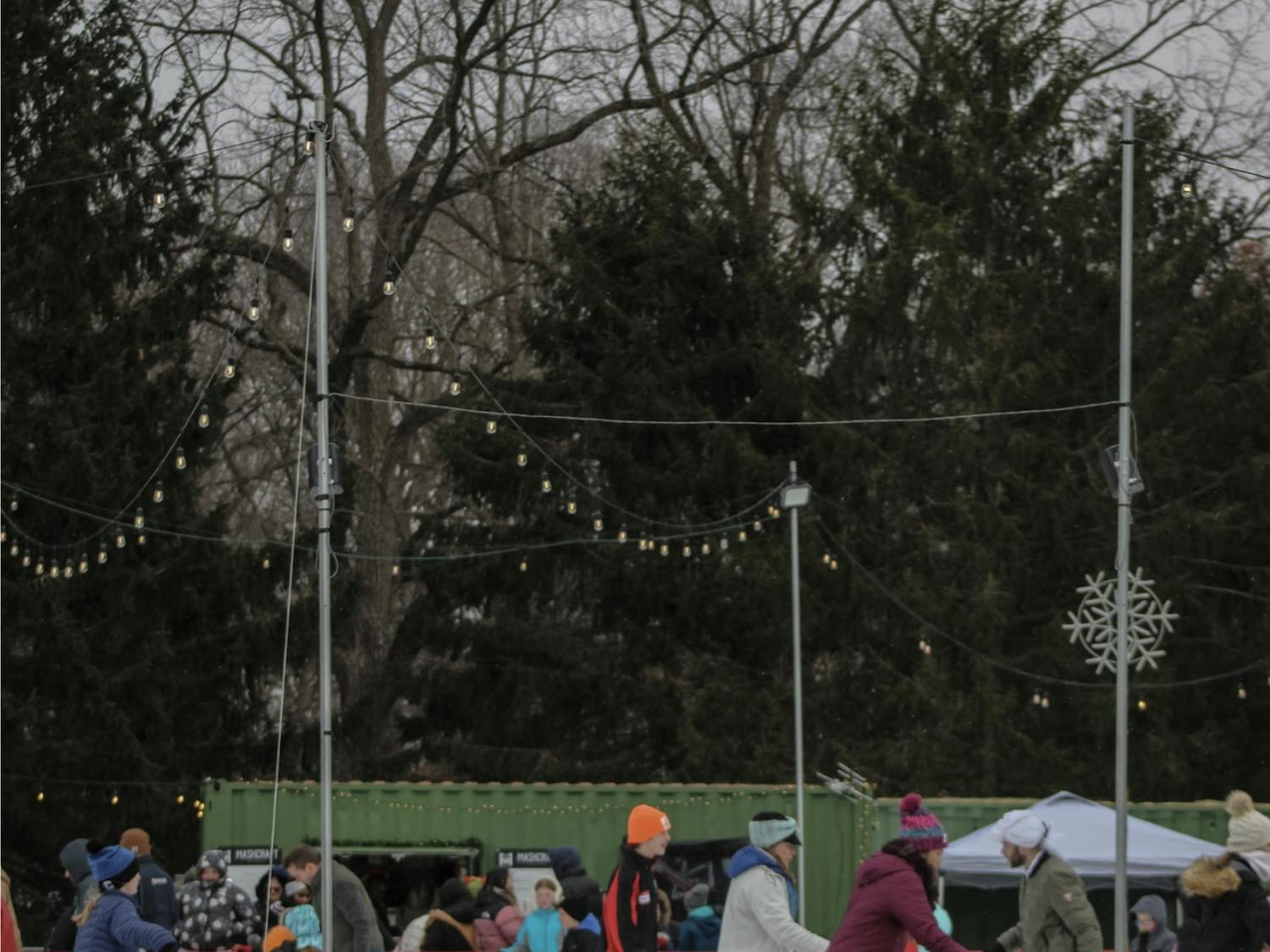From fears of meeting new people to a pandemic to getting into the landscape of online dating, there are plenty of reasons to feel awkward about dating as a young adult. Gen Z has been forced into the middle of one of the most turbulent times to meet new people, and for some, it can be too much.
On Feb. 6, the dating app Hinge released their first “Gen Z Report,” collecting answers from users to determine what trends were popular in 2023, to see what worked and how to employ those techniques on the app in 2024.
The report itself is formatted similarly to a slideshow, and focuses on three key aspects that Hinge’s surveys determined were the most important in dating last year: “embracing the cringe,” digital body language and the “what are we” conversation. While the report provided some statistics, it is written in a very casual and laid-back manner, with occasional user testimonials and tips from dating experts.
The first of these aspects was “embracing the cringe,” which explained that one of the biggest hurdles Gen Z daters experience is feeling as if they are being off-putting to their matches. According to the report, a lot of the challenge comes from the fear of rejection that is inherent in online dating. Another aspect of this fear seems to be partially related to COVID-19, as the report lists it as a reason that Gen Z is more apprehensive about meeting new people.
The idea of embracing a sillier, laid-back approach seems to resonate with the younger generation. Environmental science major and IUPUI sophomore Max Salkovsky, who met his current girlfriend on a dating app, agrees. “We started by sending gibberish,” Salkovsky explains. He believes that gauging the personality of a potential romantic partner through their taste in comedy is a great way to get a first impression of someone.
The second aspect listed in the article is the use of digital body language (DBL), or essentially, the use of indirect communication, such as the way someone texts or how they use punctuation, and how those aspects can change the perception of the person they are matching with. According to their research, Hinge found that almost 80% of daters look at their matches’ DBL to try to determine their feelings or intentions.
Deciphering what people mean versus what they say isn’t easy for everyone, and replacing face-to-face communication with social media can make it even harder. Acknowledging the idea of DBL is a great way to start to understand the meanings of how some people text.
Sociology grad student Elena Buck talked about striking this balance.
“You get out of it what you put into it,” said Buck, describing her experiences with perfecting the dance of DBL. Buck has used DBL to balance coming off as feminine without attracting predatory attention, while also trying not to appear disingenuous.
The third and final point made by the study is the “WAW,” or “what are we,” conversation. The “WAW” conversation takes place between matches, wherein people define what exactly they are from a relationship standpoint. The study mentions that there is an inherent awkwardness that comes with the conversation, and being the first one to make this move is never easy. They also mention that Gen Z is actively trying to avoid it.
Both Buck and Salkovsky agreed that dating apps are used for more than just finding relationships. Many popular dating apps outside of Hinge advertise their features as ways to meet friends outside of a romantic setting, and both interviewees mentioned the usefulness of these features. Looking for friendships is a smart way to break up the monotony of constantly looking for a relationship.
The article provides advice on overcoming all of these difficulties with a detailed ‘cheat sheet’ at the end, but assures users that trusting their gut is most important. Both IUPUI students agreed that despite what Hinge is trying to tell its users, looking for love on dating apps isn’t a great idea. Buck found her partner outside of these apps, and Salkovsky says “finding [my girlfriend] was a rare exception.” Hinge wants to grow their user base, so acknowledging this truth inherent in dating apps affects its bottom line. That being said, both parties acknowledge that dating apps have their place in the current dating landscape.
Milo Anderson is a senior majoring in journalism with a minor in film. He is a reporter and podcaster at the Campus Citizen. Milo is also in a band and enjoys watching movies, fiction writing, and playing games with his friends.





